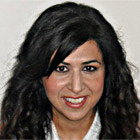
-
Saturday 12 February 2011 10.59 GMT
- Article history
Images of Afghan women have become part and parcel of the ideological battles of our century. Compare the big-toothed confidence of Hillary Clinton with the missing nose of Bibi Aisha on Time magazine covers and you get the picture. But how do such stereotypical representations of Afghan women come about? I didn't know the answer until recently, when I was asked to be a cultural adviser on the set of a film in Los Angeles. The film's story was the familiar tale of an Afghan girl who is forced to marry against her will.
The movie was my chance to add much-needed nuance and complexity to the fashionable genre of international films on the plight of Afghan women. I was filled with anticipation when I began to read the screenplay. But my heart began to sink with every page I turned. The storyline was an unimaginative take on an outdated Orientalist fantasy at best, and crude political propaganda at worst.
Its hero is an idealistic American UN worker who meets a beautiful Afghan girl at a border checkpoint. She is about to be wedded against her will but a brief misunderstanding between her and the American leads to a flirtatious argument. The American idealist is intrigued and captivated by the girl, as is the Afghan girl by the blue-eyed American. The ensuing platonic romance between east and west culminates in the girl lifting her veil to look the idealist deep in the eyes. The problem is, she is caught in the act and ends up being flogged in public by her angry Afghan father. The film ends with the UN hero shouting: "Stop it, Stop it" – but his cries are useless. His job is to observe and document, but not to interfere.
There were numerous problems with the plot but when I registered my concern, the director set me straight: "Honey, this is a movie!" It is true that films are fantasy and make-believe, but then again what was I, the cultural adviser, doing on the set?
A friend explained the situation. "This is how it works: You rubber-stamp them and they rubber-stamp you." I had a sinking feeling but withdrawing at this point was bound to be deemed unprofessional so I stayed on.
There were visual inaccuracies. The signs were in Arabic, the Afghan father was dressed as an Egyptian while the women sported Moroccan jilabas. This was a serious mix-up but the key decisions about Afghan culture had been made in my absence and judging by the team's happy energy, I was alone in my dismay.
I clung to the hope that the Afghan-American lead actress might share my concerns. After all, it was disheartening to watch everything that was meaningful to our culture turn into a farce. I tried to test her reaction and asked: "Did you see the dad?" She replied: "Yes! Doesn't he look great?" I was flabbergasted and protested: "But this is NOT how Afghan men dress!" She watched me in silence and resumed piling makeup on her face.
Later, I watched the actresses improvise the scene after the girl is caught flirting. The mother was distraught and a melodrama unfolded. The mother shouted with a thick Iranian accent in Persian: "Why did you do this to me?" But by then I had already given up on correcting her accent to sound Afghan.
"Language is not important," I had been told sharply. The Afghan girl started to defend herself. She was skinny in a trendy, self-imposed way, unlike the involuntary starvation of real people in Afghanistan. Her screeches were heartrending and implausibly loud, given that they came from underneath protruding ribs.
"That's a lie. I didn't show my face," she shrieked. This was a plausible scenario. An Afghan girl who had the guts to flirt with an American guy would be one capable of defending herself with kicks and shouts. But the film's Chinese director had her own take on female Asians' psychology. She interfered, directing the actress to project "shame".
"You are not supposed to be angry. You are supposed to be ashamed," she told the actress. And so Chinese morality was added to the film's Arab dress code and Iranian accent, leaving little that was recognisably Afghan.
I decided to tell the producer not to credit me in the film. There was no way I was going to dignify this farce with cultural authenticity. These thoughts were on my mind when I heard a crew member address me: "Would you mind being an extra and wearing this burqa for the next scene?"
I looked up and saw a crimson burqa floating in front of me. The whole crew had assembled, watching me with anticipation. As a professional woman it was expected of me to be a team player and don the burqa. "But I have never worn a burqa in my life," I heard myself protest. "We realise that it must be hard for you and we appreciate it," said the man, still holding the burqa. The irony of the situation was lost on the crew.
Minutes later, I found myself wearing a burqa for the first time in my life. "This is incredible," fumed a self-righteous extra from under her blue burqa. I found myself wanting to defend the burqa and was startled at my own reaction. I was surrounded by bossy international liberals born into wealth. They shaped the entertainment industry and ran its moralising side-project of glamorous charity events about the plights of other people.
A realisation dawned on me: so this is how it happens, the misrepresentation of Afghan women. Then I heard the word "Action!" and the camera began to roll, filming a crowd of self-righteous female western extras dressed in fake Afghan burqas.

No comments:
Post a Comment